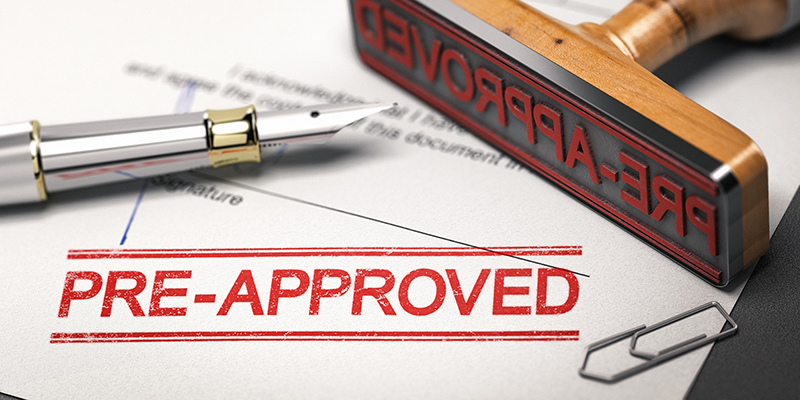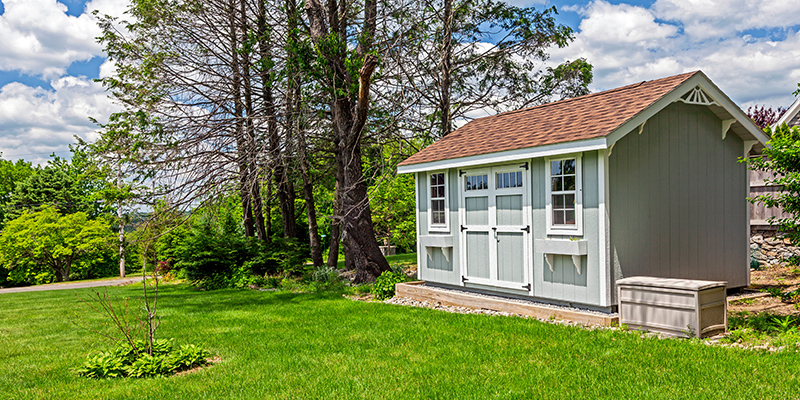A Comprehensive Guide To HOA Loans

Every community has unexpected expenses: large repairs, renovations, etc. Some situations within a community governed by an HOA call for outside financing. Acquiring a loan requires proper financial planning and clear communication between the HOA and its homeowners, so below are some of the points you should know before taking out an HOA loan.
Browse By Category
Sign up for Our Newsletter
Every community has unexpected expenses: large repairs, renovations, etc. Some situations within a community governed by an HOA call for outside financing. Acquiring a loan requires proper financial planning and clear communication between the HOA and its homeowners, so below are some of the points you should know before taking out an HOA loan.
What Is an HOA Loan?
A homeowners association loan or condominium association loan is a sum of money that an HOA would borrow from a financial institution, requiring that they pay back that sum, plus any interest, by the time agreed upon. It is a form of HOA financing that associations usually use in a time of need.
What Are the Different Types of HOA Loans?
There are a few different types of loans for condo associations and HOAs.
The first kind of HOA loan is a line of credit. If your HOA is looking to solve a short-term issue, like damage caused by a natural disaster, this is the type of loan for you. Lines of credit are flexible with a preset borrowing limit, and the institution you borrowed from will only charge interest on the funds you take out. Because of this, your monthly loan payments are variable, and so is your interest rate. You can get a line of credit for a period of anywhere from 1 to 5 years.
Alternatively, you could get a line of credit with conversion. This loan has two phases: the first is a line of credit, and the second, which begins after 12 months of project completion, is a standard term loan where the creditor sets the HOA loan rates. The HOA must repay the principal and interest until that term is over.
A standard term HOA loan allows the HOA to get the entirety of the loan amount right away, and then the HOA pays that amount back over the set term period. If you are an organization that wants to acquire land or accomplish large-scale projects or repairs, this is the best loan for you since you can pay back this loan for 5 to 15 years. The interest rate is fixed.
Finally, you could acquire a short-term HOA loan. This is the same as getting a standard term loan but with a shorter repayment period. These loans could be anywhere from 3 to 10 years. Although the monthly loan installments are higher, your HOA can repay the loan quickly with less interest.
What Happens When an HOA Defaults on a Loan?
Lenders employ different contingency plans if the HOA falls behind on loan payments. Firstly, lenders may try to work through short-term issues. They’re likely sympathetic to associations because the issues may arise from the change in their accounting systems. Lenders also understand the stress that may result from the board members’ new management strategy. As a result, it may take months for delinquent loan payments to become default payments.
When HOAs default on their loan, lenders will take legal recourse as a last resort. They will ask the court for judgment. If the lender succeeds, the HOA’s future assessments will go into a designated account. In some way, the lender will act like the HOA’s trustee.
When this happens, the lender will have the first right to the association’s monthly payments. The remaining balances will then go to the HOA. Hence, associations that default on their loans will need to rely on reduced cash flows. Their services such as monthly garbage collection, landscaping, and snow removal may suffer.
However, since creditors do not take homes as collateral, people may continue to buy and sell their homes in the community. Apart from the reduced services, the daily lives of homeowners will not be affected. Their home mortgage or personal credit will not suffer.
The Benefits: Why Take Out an HOA Loan?
An HOA loan is useful for several different things. Firstly, they’re helpful for communities that want to finance an HOA capital improvement project. They can also help HOAs fund large repairs or maintenance jobs. Moreover, they can pay for large annual insurance premiums upfront. This is especially useful if the insurance company provides a discount for advance payments.
In addition, some associations prefer to take out a loan when faced with a large expense instead of levying a special assessment. While an HOA would still need to charge a special assessment or increase regular dues to pay the loan, it can do so over time instead of in a single lump sum.
Apart from these, loans allow HOAs to spread out the cost of improving or renovating common areas. As a result, the HOA can assign the cost of these improvements to members who will benefit from them the most. Furthermore, loans allow the HOA to pay for projects at today’s prices, avoiding inflation and ensuring the work is completed sooner.
The Drawbacks: What Are the Pitfalls of HOA Loans?
An HOA loan comes with several potential risks. The first drawback is that HOA loans will likely require an increase in monthly assessments. This increase may be small but it can be impactful for homeowners who are struggling to keep up.
In addition, there have been several cases wherein HOA loans were subject to fraud and mismanagement. Board members may use the funds dishonestly. Meanwhile, some might simply use the funds poorly. For example, a board might take out a loan because they don’t want to raise monthly dues. Dues will need to increase eventually so the board should instead budget for the increase.
Apart from this, HOA loans can be a large financial burden for communities with many delinquent homeowners. This makes it hard for the community to pay back the money, increasing the risk of defaulting on the loan. The bank may take legal action and even tap into the reserve funds to get their payment.
How Do HOAs Apply for a Loan?
 The HOA loan process usually begins with thoroughly checking your governing documents. An association’s CC&Rs and bylaws should dictate whether or not the HOA has the authority to borrow money. An HOA can sometimes turn to state law if the governing documents are silent. For instance, in California, Corporations Code Section 7140 contains such a provision.
The HOA loan process usually begins with thoroughly checking your governing documents. An association’s CC&Rs and bylaws should dictate whether or not the HOA has the authority to borrow money. An HOA can sometimes turn to state law if the governing documents are silent. For instance, in California, Corporations Code Section 7140 contains such a provision.
After confirming the HOA’s authority to borrow, the next step is to find a financial institution willing to loan money. Associations can typically take out a loan through a bank or a creditor. You can apply for a loan in person or online. In total, receiving an HOA loan can take around 6 months.
What Are the Different HOA Loan Requirements?
HOA loan requirements typically prompt creditors to ask questions that assess how much risk they’re taking in offering a loan to your organization. They may ask questions such as:
- Delinquencies. How many homeowners are delinquent and how much money is involved?
- Liquidity. How much cash does the HOA have as a percentage of the annual assessments and annual debt service?
- Number of Units. How many units are occupied by owners?
- Monthly Assessments. How much are the monthly assessments? Will the HOA raise monthly assessments to pay for this loan?
- Capital Planning Experience. How experienced are the board members when it comes to capital planning
Tips to Keep in Mind
An HOA should only borrow from reputable lenders. Moreover, an HOA should only apply for a loan if it has good reason to believe that it can repay it promptly. There are pros and cons in getting an HOA loan and you should make sure it is the best option for your association before considering one.
To determine whether your HOA meets these criteria, your organization should have strong financial planning and a good grasp of your financial metrics. The board should have a clear plan to pay back the loan. Additionally, the board should be able to show homeowners proof of believing that they can do so.
Another point to remember is that an HOA loan is not a way to avoid raising dues. Taking out a loan will require a raise in payments for homeowners.
Lastly, remember that an HOA in debt can negatively impact homeowners. This is because homes in the community may not be able to qualify for certain financing or mortgage options. If your HOA is considering taking out a loan, board members should understand how the loan will impact credit and loan options in the future.
Frequently Asked Questions
Here are the answers to some of the most frequently asked questions about HOA loans.
Can All HOAs Borrow Money?
As previously explained, an HOA’s authority to borrow money will come from its governing documents. It is important to check your CC&Rs and bylaws to understand whether or not your association has the power to take out a loan. That said, some governing documents don’t say anything regarding this matter. In that case, an HOA may check state laws.
Does an HOA Need Member Approval for a Loan?
It depends on the association. Check your governing documents to see if membership approval is necessary to take out a loan. Sometimes, an HOA must secure the membership’s approval before entering a loan agreement and levying a special assessment for repayment.
Do HOA Loan Rates Fluctuate?
Yes, interest rates for HOA loans can and do fluctuate. Rates can also vary from one lending institution to another. Therefore, an HOA board should conduct proper research when taking out a loan.
Does Bank Loan to HOAs Require Collateral?
Can an HOA get a loan without collateral? Normally, banks require real property as collateral for loans. However, in HOAs and condominiums, homeowners own properties in common. Thus, banks will usually require different collateral for such associations.
More often than not, banks will require HOAs and condos to pledge their accounts receivable or special assessment. This way, if the association defaults on the loan, banks can pursue payment from member dues or assessments.
The Final Word
Taking out an HOA loan is an impactful decision that should be made with input from both the board and homeowners. A clear, realistic plan for paying back the loan is crucial. After all, having a community in debt can lead to negative outcomes. Of course, if your HOA doesn’t have to take out some form of external financing, it’s best to avoid going into debt in the first place.
An HOA management company can help your association navigate the ins and outs of HOA loans. Start looking for one in your area using our online directory!
RELATED ARTICLES:
- Possible HOA Board Conflict Of Interest Issues And How To Handle Them
- Can Homeowners Sue HOA Board Members Or The Condo Board?
- 11 Financial Mistakes A Self-Managed HOA Must Be Wary Of
Trending Now
Related Article
Sign up for Our Monthly Newsletter
Sign up below for monthly updates on all HOA Resource
















